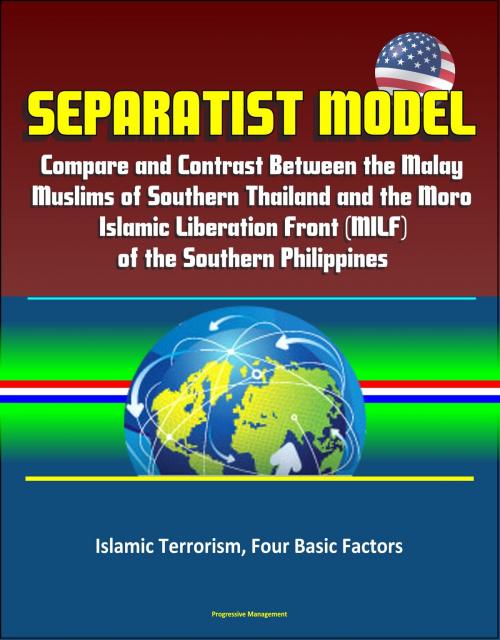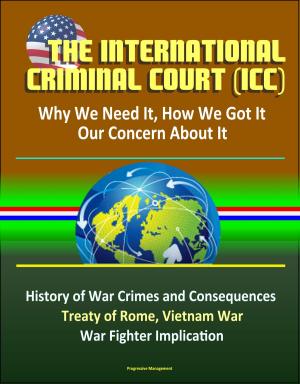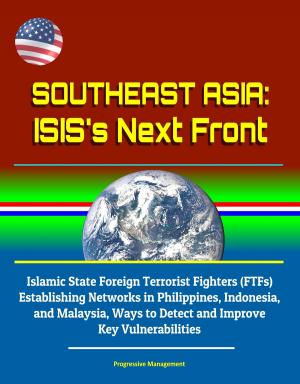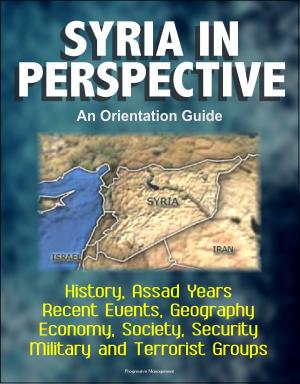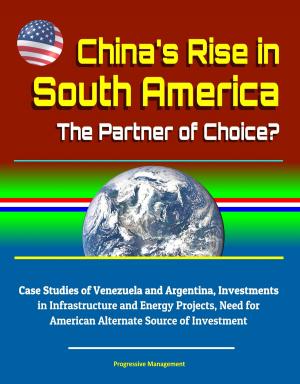Separatist Model: Compare and Contrast Between the Malay Muslims of Southern Thailand and the Moro Islamic Liberation Front (MILF) of the Southern Philippines - Islamic Terrorism, Four Basic Factors
Nonfiction, History, Asian, Southeast Asia, Military, United States| Author: | Progressive Management | ISBN: | 9781311193889 |
| Publisher: | Progressive Management | Publication: | July 14, 2016 |
| Imprint: | Smashwords Edition | Language: | English |
| Author: | Progressive Management |
| ISBN: | 9781311193889 |
| Publisher: | Progressive Management |
| Publication: | July 14, 2016 |
| Imprint: | Smashwords Edition |
| Language: | English |
This excellent report has been professionally converted for accurate flowing-text e-book format reproduction. The majority of conflicts around the world involve some type of internal warfare including insurgency. Most of these are separatist insurgencies. Typically, these insurgencies lack the size of population to try and overthrow the government. Instead, they seek to maintain the identity of the group, its culture, and religion. When such groups feel that their identity is severely threatened, they may use violence to try to change government policy and operations. Success for a separatist insurgency is obtaining institutionalized protection of its identity through negotiated settlement, semi-autonomy, autonomy, or full independence. This thesis identified four factors that generally must be present for separatist insurgents to achieve that success in protecting the group identity. These four factors are identity, ressentiment, mobilization, and will. These four factors were the basis for examining separatist insurgencies by comparing and contrasting the Malay Muslims of southern Thailand and the Moro Islamic Liberation Front (MILF) of the Philippines. The Thai Malay Muslim insurgency has stalled and any serious challenge to the Bangkok government diminished due its inability to organize effectively and define its political objectives. However, recently the Thai government has started a dialogue with one insurgent group in Malaysia. The MILF's stronger organization and clearer objectives led to negotiations with the Philippine government. Of the two, the MILF insurgency has had more international attention and pressure. The four factors are indicative of the relative success of these two separatist insurgencies.
This excellent report has been professionally converted for accurate flowing-text e-book format reproduction. The majority of conflicts around the world involve some type of internal warfare including insurgency. Most of these are separatist insurgencies. Typically, these insurgencies lack the size of population to try and overthrow the government. Instead, they seek to maintain the identity of the group, its culture, and religion. When such groups feel that their identity is severely threatened, they may use violence to try to change government policy and operations. Success for a separatist insurgency is obtaining institutionalized protection of its identity through negotiated settlement, semi-autonomy, autonomy, or full independence. This thesis identified four factors that generally must be present for separatist insurgents to achieve that success in protecting the group identity. These four factors are identity, ressentiment, mobilization, and will. These four factors were the basis for examining separatist insurgencies by comparing and contrasting the Malay Muslims of southern Thailand and the Moro Islamic Liberation Front (MILF) of the Philippines. The Thai Malay Muslim insurgency has stalled and any serious challenge to the Bangkok government diminished due its inability to organize effectively and define its political objectives. However, recently the Thai government has started a dialogue with one insurgent group in Malaysia. The MILF's stronger organization and clearer objectives led to negotiations with the Philippine government. Of the two, the MILF insurgency has had more international attention and pressure. The four factors are indicative of the relative success of these two separatist insurgencies.
